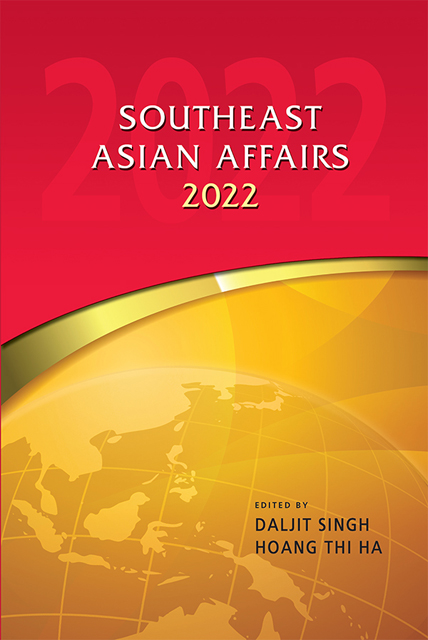China’s Role in Southeast Asia in 2021: Reassurance, Resolve, and Resurging Competition
Published online by Cambridge University Press: 01 September 2023
Summary
China’s Foreign Policy and Security Strategy
China’s continuing growth in power and influence is arguably the single most important question unfolding in international security and politics. By most measures, China has already completed a regional power transition, with the regional distribution of its capabilities and wealth changing rapidly over the past generation. For instance, China’s share of the Asia-Pacific’s gross domestic product (GDP) grew from 7 per cent in 1988 to 46 per cent in 2014, while Japan’s share fell from 72 per cent in 1988 to 24 per cent today. During this period, China’s GDP saw a thirty-fold increase to more than US$10 trillion and it is now the second-largest economy in the world. Its GDP per capita hovers at $10,000 and its military spending currently accounts for nearly 10 per cent of total global military expenditures.
A delicate balance of continuity and change in the Chinese leadership’s priorities appears to undergird its broader and longer-term foreign and security policy strategy. The regime continues to be guided by the overarching tenet that maintaining a peaceful and stable external security environment is essential for continued structural reforms, domestic growth and development. This core idea builds from Deng Xiaoping’s vision in the early 1980s where he concluded that the world was tending towards peace and development, that the likelihood for major, global wars were diminishing, and as such China could expect and benefit from a stable international environment to carry out its much-needed domestic reform and development. This basic principle was continued under Deng’s successors with such principles as the “new security concept” and “China’s peaceful development”.
Reaffirming these preceding strategic concepts, the current Chinese leader, Xi Jinping, presented the “Chinese dream” upon taking the helm. The concept has been linked to Xi’s call for the “great rejuvenation of the Chinese nation”, achieved through “good external conditions for China’s reform, development, and stability”. The vision promotes two major aspirations that are of significance to the regime: first, the vision to build a “moderately well-off society” by this year, the hundredth anniversary of the founding of the Chinese Communist Party; and, second, the vision of becoming a fully industrialized nation in under three decades, by 2049, the hundredth anniversary of the establishment of the People’s Republic of China.
- Type
- Chapter
- Information
- Southeast Asian Affairs 2022 , pp. 60 - 72Publisher: ISEAS–Yusof Ishak InstituteFirst published in: 2023



